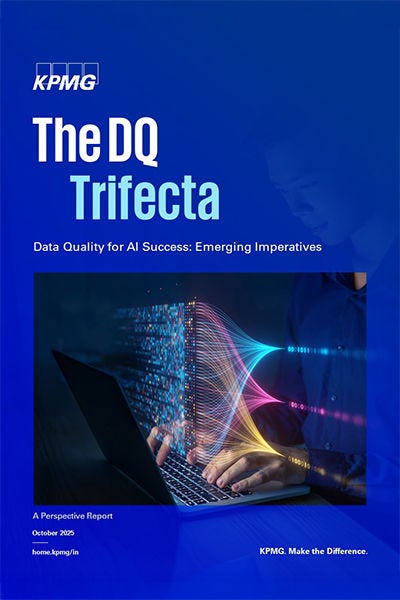Data quality issues are among the leading causes of biased AI models and poor performance outcomes. For AI to deliver on its transformative promise, organisations must first build a solid data foundation. Clean, accurate, and reliable data is the fuel that powers effective, trustworthy AI.
Neglecting data quality before model build undermines the entire analytics strategy. Poor-quality data erodes trust in insights, leading to flawed decisions and reputational risk. It inflates costs through rework, delays, and increased maintenance, reducing ROI on AI initiatives.
Strategically, it creates a fragile foundation-models become less scalable, harder to govern, and non-compliant with regulatory standards. Moreover, it limits the organisation’s ability to operationalise advanced analytics, as unreliable outputs discourage adoption by business stakeholders. Ensuring robust data quality upfront is not just a technical necessity; it’s a strategic enabler value-driven AI transformation.
This perspective report addresses the persistent ‘garbage-in, garbage-out’ challenge by highlighting emerging trends in data quality across industries such as finance, life sciences, healthcare, and consumer markets. Drawing from experiential insights, it introduces a structured approach for AI enablement built around three key pillars:
- Strategic anchors: Aligning with purpose and direction of data quality initiatives
- Operational levers: Answers ‘How’ to operationalise/implement the DQ programs
- Integration points: Defines ‘Where’ are my critical touchpoint for maximising DQ impact
By shifting the focus from reactive data fixes to proactive, embracing process-driven quality improvements, organisations can unlock scalable, bias-free AI solutions that drive meaningful business outcomes.
The ‘DQ Trifecta – Data Quality for AI Success’ cracks the permafrost of the old data quality methodologies to present a more holistic, complete approach to this challenge. The paper does more than suggest changes to existing data quality approaches. It suggests a cultural shift in how organisations should view the curation of arguably one of the most important corporate assets – their data.







